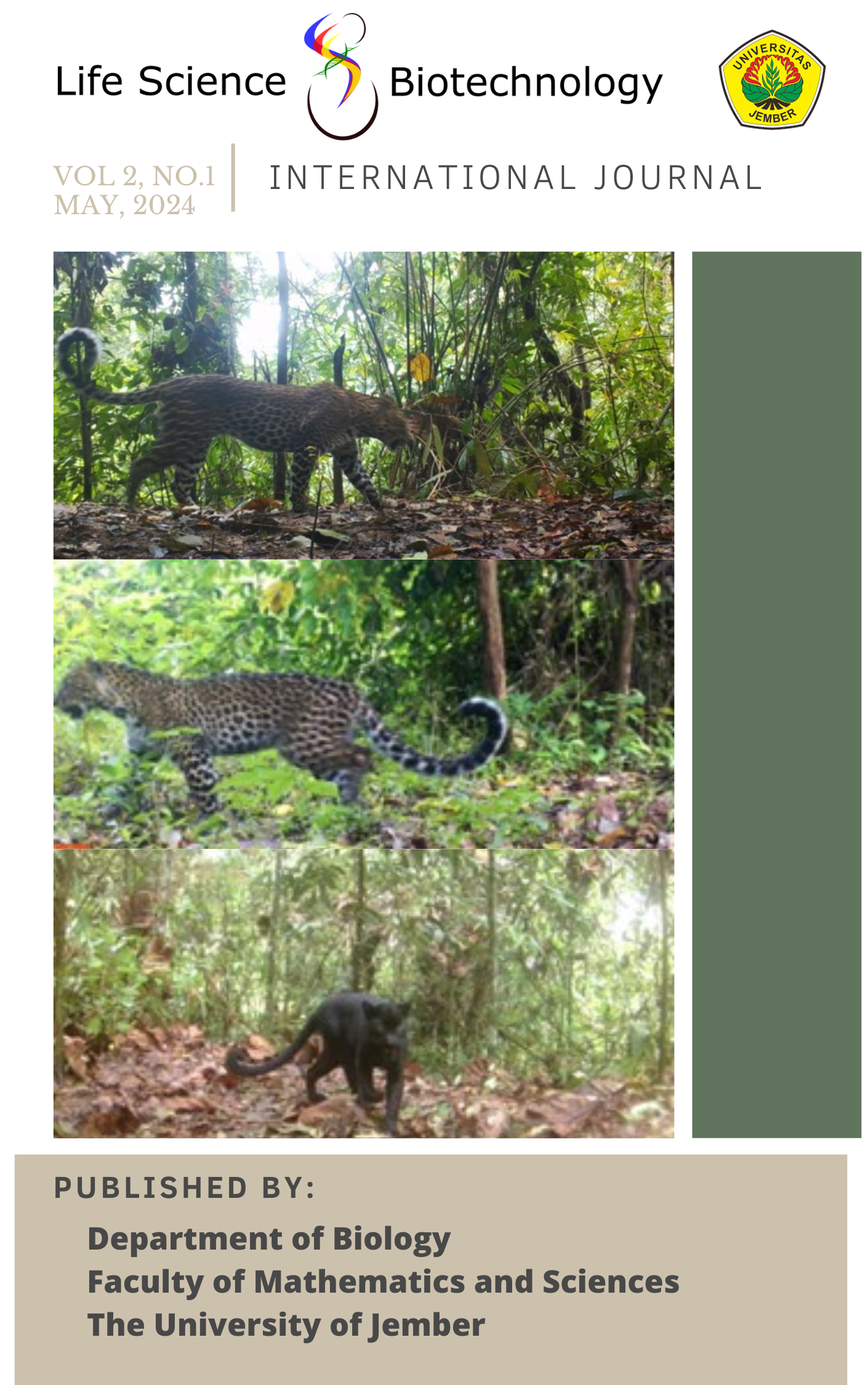Growth and physiological adaptation of Ageratum conyzoides L. under salinity stress
DOI:
https://doi.org/10.19184/lsb.v2i1.49086Keywords:
Ageratum conyzoides, chlorophyll, salinity, stressAbstract
Physiological stress affects all plants, including salinity stress, which poses significant challenges. Ageratum conyzoides L. was selected as the subject of this study due to its reputed ability to thrive under various stress conditions, owing to its excellent adaptive capacity. The study employed salt solutions at concentrations of 1000 ppm, 3000 ppm, and 5000 ppm, administered as a single treatment over four weeks. The aim was to assess the impact of salinity stress on the growth, stomatal density, and chlorophyll content of A. conyzoides. Results indicate that salt treatment adversely affected the height of A. conyzoides. Stomatal density was highest at the 5000 ppm concentration, attributed to intensified transpiration in response to stress compared to lower concentrations. Chlorophyll content also showed an reduced at higher salt concentrations. These findings highlight the physiological responses of A. conyzoides to salinity stress, providing insights into its adaptation mechanisms under adverse environmental conditions.




